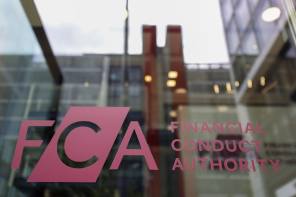
Former England and Real Madrid footballer Michael Owen’s decision to invest in a cryptocurrency platform sparked much debate this week.
Since retiring, Mr Owen, who played for clubs including Liverpool, Real Madrid and Newcastle has invested in property and bloodstock as well as becoming a television pundit.
Mr Owen announced he is investing in Global Crypto Offering Exchange, a platform that allows individuals to launch their own cryptocurrency.
In the current climate of 'where there is blame there is a claim', one of the best pieces of advice for financial advisers I ever heard is if you can’t explain it you shouldn’t invest in it yourself or recommend it.
As the brilliant satirist John Oliver pointed out, with cryptocurrency for the bulk of people you are combining everything most people don’t understand about finance with everything they don’t understand about technology.
When we reported on Mr Owen’s decision, Bryn Jones, in FTAdviser’s comment section, queried “Where is the substance” behind cryptocurrency?
In response to Mr Jones, another adviser tried to argue that was what people said about the internet in the 1990s.
I beg to differ. With the internet, you had something that made tasks that previously took up lots of time and money – whether that was research, buying goods or arranging holidays – cheaper and quicker to do.
Other than people buying into it because they have heard how you can turn one pound into thousands, what is actually driving the valuation of cryptocurrency other than demand?
Earlier this month, Mark Carney, governor of the Bank of England, said digital currencies have failed to replace traditional money and need to be regulated.
He said regulators would now need to decide whether to "isolate, regulate or integrate" cryptocurrencies and their associated activities.
Cryptocurrencies are currently banned in Bangladesh, Bolivia, Ecuador and Morocco while China has recently banned exchanges, financial institutions and payment processors from handling them.
Even if cryptocurrency replaces the likes of pounds, dollars and Euros as the way the world wants to pay for things if there is a blip in the value then unlike with more traditional hard cash who is going to make sure the value isn’t wiped out to zero?
With cryptocurrency we have no central banks or governments backing this form of payment who can’t afford to have the cash they issue seen as being worthless.
My mind harks back to history lessons that clearly haven’t been learnt by a generation who want to live virtually through Facebook about what happened with Germany’s currency between the wars.
During the hyperinflation in Germany of 1920s, the country's currency, the mark, went crazy with the link to gold severed and the government pumping notes out into the economy.
By pumping notes out the government of the Weimar Republic may have been able to pay off what World War One winning nations demanded in reparations but it came at a cost.
German citizens' savings were obliterated, which contributed to the rise of Adolf Hitler and World War Two.
With cryptocurrency I get the sense people will only realise how little they know about this when they lose the shirts off their backs and then there will be anger.
With no faces to show – other than some celebrities willing to push this currency – who will investors in cryptocurrencies that go wrong blame? It will be the government and financial advisers.
You have been warned.
emma.hughes@ft.com




